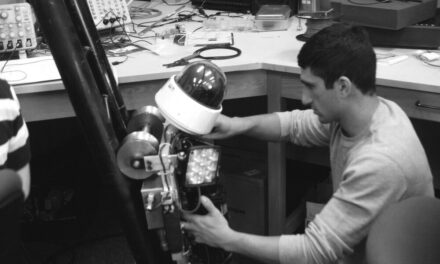 Automotive textile manufacturer Autofil Worldwide has achieved average cost savings of £37,000 a year and reduced annual CO2 emissions by 260,000 tonnes by adopting Atlas Copco’s energy recovery technology.
Automotive textile manufacturer Autofil Worldwide has achieved average cost savings of £37,000 a year and reduced annual CO2 emissions by 260,000 tonnes by adopting Atlas Copco’s energy recovery technology.
Based in the UK, Autofil Worldwide is a manufacturer and supplier of polyester yarns for the automotive sector. By recovering heat produced by the air compressor used in the manufacturing process, the company is able to raise the temperature of the process water it requires, which reduces overall energy usage.
The primary manufacturing operations at Autofil’s 10,000sq m UK plant require a substantial volume of compressed air, which is supplied via an Atlas Copco system. The system is controlled by an ES 360 optimiser, and comprises 12 compressors, including three GA 160+ units and a GA 250 compressor connected to a stand-alone ER-S5 energy recovery unit.
As well as the considerable demand for compressed air on site, the dyeing processing has an equally large requirement for process hot water. A 50,000l tank stores water for several dyeing process operations in the factory and the by-product heat from the GA 250 compressor is used to pre-heat this water to around 50°C, rather than relying on additional gas power to heat it at point of use.
This is made possible by the ER-S5 energy recovery unit, whereby hot oil from the compressor’s air end is diverted through a stainless steel plate heat exchanger. Heat from the oil is transferred to cool water on the opposite side of the exchanger, producing a continuous flow of hot water from the ER outlet.
The water circuit between the tank and ER unit takes cooler water and replaces it with the heated water. After a few hours, this circuit reaches its optimum inlet/outlet temperature: inlet water from the top of the tank to the ER at +/- 30°C; outlet water fed back from the ER to the bottom of the tank at +/-55°C, achieving a temperature rise of 25°C.
Based on the compressor running for 8,424 hours per year, the combination of the GA 250 and ER-S5 unit is recovering more than 1.4 million KWh of energy a year. The savings are self-evident: to increase the temperature of the same amount of water with a gas-fuelled heating source would have cost Autofil £37,096 annually and would have generated 260,000 tonnes of CO2.
Commenting on this reduction in his company’s carbon footprint, Steve Charlton, Autofil’s engineering and IT manager, said: “We are an energy conscious company and constantly strive for improved efficiency and energy saving solutions in the way we run our operations. Atlas Copco’s compressor technique service team have been able to provide sustainable energy-saving solutions over recent years to help us reduce our compressed air energy consumption, notably the introduction of their ES 360 optimiser controller which matches supply to demand, allowing us a 360 degree visualisation of the compressed air installation in terms of pressure, supply and demand. Now, we have added an energy recovery unit to further optimise the installation.”
At its plant in Sherwood Park, Nottingham, the company manufactures coloured air-textured (ATY) and false-twist textured (DTY) polyester yarns with a natural appearance. Using these yarns, Autofil’s customers weave or knit fabrics which form the basis of interior trim for seats, door panels, pillars, parcel shelves and headliners.
With a continued focus on environmental responsibilities, including industry standards such as ISO14001 and the recently-introduced ISO50001, Autofil is keen to focus on managing and monitoring its energy usage, and the environmental impact of its process operations.
For many manufacturers, producing compressed air is neither cheap nor energy efficient, with as much as 94% of the electrical energy used to compress air delivered in the form of heat. This heat has to be removed via the compressor cooling system and is often wastefully vented into the atmosphere – along with a substantial amount of energy and cost associated with the production of compressed air, a proportion of which may be surplus to the required amount.
By recovering this heat for another practical purpose, the potential for savings is obvious, as is the performance of Autofil’s ER unit. To provide evidence of this, inlet/outlet temperatures from the ER-S5 are continuously monitored via the temperature sensors provided and can be visualised in a number ways – on the compressor controller and on Autofil’s ES360 optimiser controller, which allows for trend readings and can be continuously monitored via the company’s BMS.
With Atlas Copco SMARTLINK-Energy, the values can be monitored at any time anywhere via the SMARTLINK website. These monitoring and display solutions allow the creation of reports, essential for ISO auditing requirements, as well as for internal management and performance systems.


